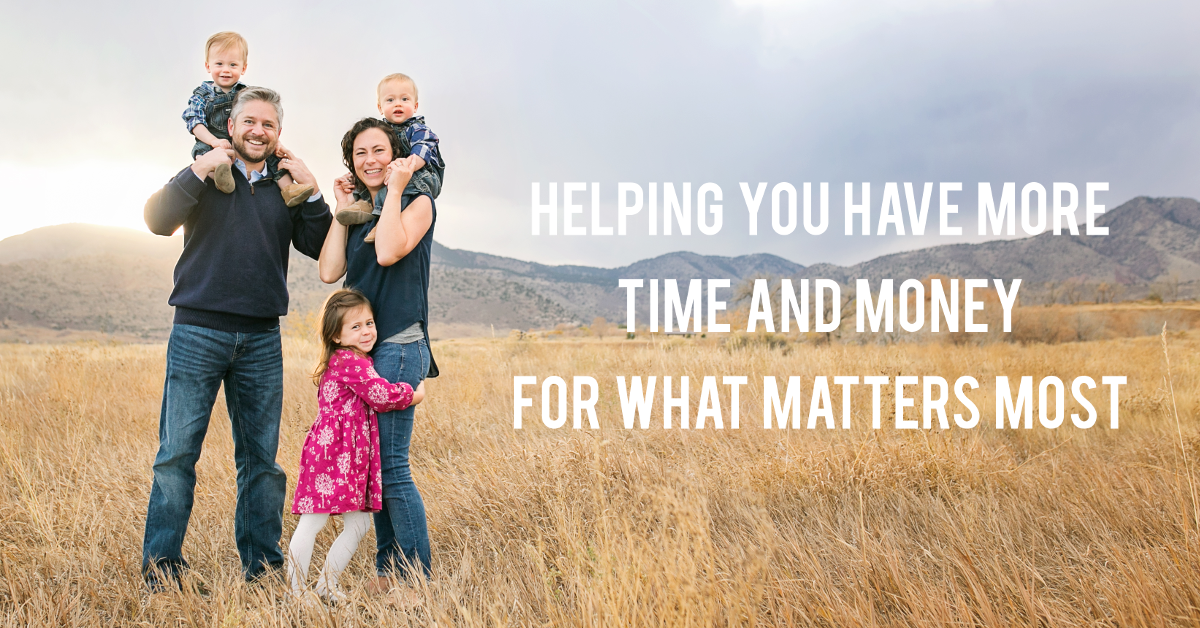Have you ever been up against a deadline and found yourself accomplishing more than seems humanly possible? Final exams used to spark that feeling for me as a student. Now, my biggest work projects do. I also recall getting a million things done in the days leading up to my wedding.

Lots of pressure can be stressful. But for many of us, it is also energizing. Our focus skyrockets. We become super-efficient. We feel intensely alive.
Do you ever wish that you could live “in the zone” more often? After all, final exams, big work projects, and weddings don’t come around every day.
I’d like to discuss three approaches to being super-efficient more often. One I argue against, and two I argue for. But before I get into them, I want to share a principle that stands behind them.
It is called “Parkinson’s Law.” It states that “work expands so as to fill the time available for its completion.” The best-known corollary to the law is, “If you wait until the last minute, it only takes a minute to do.”
The corollary is an exaggeration, for sure. Even the law itself may be.
But they help explain why we often find ourselves most efficient when deadlines draw near. Rather than our work expanding to fill a large amount of time, it gets compressed into the little time available for it.
False Solution: Procrastinate
One way to get “in the zone” is to procrastinate. Procrastination increases efficiency for the reason laid out in Parkinson’s Law. The procrastinator artificially limits the time available for a project, thereby forcing a period of intense activity in order to accomplish the work in the end.
But there are many problems with procrastination. One is that it doesn’t accomplish more overall. It accomplishes the same amount through a combination of less in the beginning and more in the end. After wasting 50 minutes, the procrastinator completes an hour of work in 10 minutes. So it isn’t actually more efficient overall. Not to mention it tends to stress out those depending on the procrastinator.
Put More Load on the Arch
Rather than procrastinate, one can create a similar sense of urgency and efficiency by taking on more. Sounds horrible, right? Who wants more to do? But hear me out.
What if the “more” you take on is really meaningful to you? It could be exercise, learning a new language, volunteering, getting an advanced degree—anything you are passionate about.
A recent post on The Art of Manliness points out that when you put more load on an arch, the arch is strengthened because the parts are joined more firmly together. Similarly, the post argues, taking on additional meaningful work can be life-giving.
And, I would add, it can certainly increase one’s efficiency. Instead of procrastinating, you churn through whatever is at hand so that you have time for your other responsibilities and meaningful pursuits. I’ve found this to be true in my own life, whether as a result of adding new projects to my plate at work, having more kids, or . . . starting a blog.
How, exactly, you and I are able to take on more even when we find ourselves already busy is a topic I will discuss in future posts. For now, suffice it to say humans are extremely good at adapting. In future posts I will share many adjustments I’ve made to allow me to do more with less time. I’d love to hear your hacks as well.
As in the case of procrastination, putting more load on the arch helps you live more frequently “in the zone.” But unlike in the case of procrastination, you are accomplishing more overall. And, depending on the nature of the additional load you take on, you can enhance your life and/or the lives of others.
Take Time Away from Work for Purposeful Rest
Putting more load on the arch increases efficiency by stretching you to accomplish more in the time available to you. The other way to get “in the zone” more often is to limit the time available to you to work.
The procrastinator does this, but usually by frittering away the time between periods of efficiency. That is not what I’m proposing.
What I’m suggesting, rather, is purposefully setting aside time to rest, to rejuvenate, to be. Going to church, enjoying nature, and conversing with friends are examples of such leisure activities.
One could argue that it is chiefly for the sake of activities such as these that it makes sense to strive for efficiency in the first place. At the same time, in line with Parkinson’s Law, engaging in such leisure activities does drive efficiency in our work by limiting the time available for it.
My awareness of this truth is renewed whenever I return from vacation. With how busy we all are, it seems we should never be able to catch up on work after being out of the office. Yet, after a week-long vacation, we manage to catch up within a few days.
Conclusion
Most of us have experienced periods of time when we’ve accomplished a lot in a little amount of time. Such efficiency can be energizing.
Procrastination gives the feeling of efficiency but without actually accomplishing more. You can achieve greater efficiency and other benefits as well by taking on more and/or by taking time away from work for purposeful rest.
Question: Do you like living “in the zone” of efficiency? If so, what do you do to get/stay there more often? You can leave a comment by clicking here.
If you liked this post, why not join the 5,000+ subscribers who receive blog updates on how to have more time and money for what matters most? Sign up here.

Brian, I like your comments about increasing efficiency. In psychology I remember learning how we all have an optimal stress set point where we tend to work at our best. Interestingly, given too little to do, we end up performing almost as poorly as if we had too much to do. I see this in my own work – if there’s not enough to do, I find it difficult to finish even those few tasks that I am assigned.
Thanks for sharing that, Jason!
Great post- Another helpful talk on the idea of productivity, creativity and procrastination comes from Adam Grant in a recent TED talk-thought you’d like it.
http://www.ted.com/talks/adam_grant_the_surprising_habits_of_original_thinkers?language=en
Thanks, Brian!
I first learned of Adam at the Global Leadership Summit in 2015, where he spoke. I then read his book “Give and Take: Why Helping Others Drives Our Success,” which I thought was excellent.
But he then sort of fell off my radar. I appreciated watching the TED talk you sent and being reminded of his work.